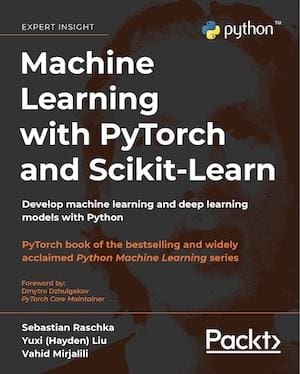5 Ways to Expand Your Knowledge in Data Science Beyond Online Courses
Let's have a look at ways we can expand our data science knowledge that go beyond online courses.

Photo by Gabriella Marino on Unsplash
Key takeaways
- In today’s modern world of information technology, there are unlimited online resources for learning data science.
- Most of the data science resources provide superficial knowledge only.
- To expand your knowledge beyond online courses, you must put in extra effort to gain in-depth knowledge of core data science concepts.
There are unlimited online resources for learning data science. Some of these resources can be found on platforms such as YouTube, KDnuggets, Medium, or on platforms that offer massive open online courses in data science such as the following:
- edx: https://www.edx.org/
- Coursera: https://www.coursera.org/
- DataCamp: https://www.datacamp.com/
- Udemy: https://www.udemy.com/
- Udacity: https://www.udacity.com/
- Lynda: https://www.lynda.com/
While it is beneficial to use these resources as a starting point for learning the basics of data science concepts, more effort is need to expand one’s knowledge beyond the fundamentals.
Additional Approaches Of Expanding Your Knowledge
Data Science Textbooks
Textbooks are recommended as great teaching tools for advanced learners who are interested in diving deep beyond what is covered in online courses. For me personally, one textbook that stood out to me (I still consult this book as my main reference when working on data science projects) is the book: “Machine Learning with PyTorch and Scikit-Learn”, by Sebastian Raschka. This book provides a great introduction to data science and machine learning, with code included. The GitHub repository for this book with code for all chapters can be accessed by clicking on this link: https://github.com/rasbt/machine-learning-book

This book is one of the best data science books out there for beginners. The author explains fundamental concepts in data science and machine learning in a way that is very easy to follow. Also, the code is included, so you can actually use the code provided to practice and build your own models. I have personally found this book to be very useful in my data science journey. I would recommend this book to any data science aspirant. All that you need is basic linear algebra and programming skills to be able to understand the book. There are lots of other excellent data science textbooks out there such as “Python for Data Analysis” by Wes McKinney, “Applied Predictive Modeling” by Kuhn & Johnson, and “Data Mining: Practical Machine Learning Tools and Techniques” by Ian H. Witten, Eibe Frank & Mark A. Hall.
Real-world Data Science Problems
While online courses in data science provide some foundational knowledge, you can hone your skills by applying your newly acquired knowledge to data science projects. As you challenge yourself to apply your knowledge to real-world data science projects, it will help you to develop in-depth knowledge in core data science concepts. Kaggle competitions in data science provide good challenging projects individuals with advanced knowledge in data science.
Networking With Data Science Professionals
From my personal experience, I have learned a lot from weekly group conversations on various topics in data science and machine learning by teaming up with other data science aspirants. Network with other data science aspirants and professionals; share your code on GitHub; and showcase your skills on platforms such as LinkedIn, Kaggle, or Medium. This would help you to learn a lot of new concepts and tools within a short period of time. You also get exposed to new ways of doing things, as well as to new cutting-edge algorithms and technologies. Networking will also enable you to sharpen your communication and team player skills.
Share your data science knowledge by writing blogs
The best way to learn something is by teaching. When you teach others, you are forced to understand the core concepts, and your goal is to explain these core concepts to your students or the public in a way that is easy to understand. Blogging is an excellent way to develop and advance your knowledge in data science. When I am trying to learn something new, I always challenge myself to write a blog on the subject. It is a way that I can prove to myself that I have understood the concept. There are numerous platforms for blogging in data science such as Medium, KDnuggets, etc. You can also earn income from your blogs, which is great for supplemental income.
Internship Or Part-time Job
An internship would give you the opportunity to apply your data science knowledge in a real-world setting. This would help you increase your knowledge in data science. An internship would also provide an opportunity for you to develop essential soft skills such as communication skills and team player skills.
In summary, there are unlimited online resources for learning data science available on the internet. Most of the data science resources provide superficial knowledge only. To expand your knowledge beyond online courses, extra effort is needed. This would enable you to gain in-depth knowledge of core data science concepts.
Benjamin O. Tayo is a Physicist, Data Science Educator, and Writer, as well as the Owner of DataScienceHub. Previously, Benjamin was teaching Engineering and Physics at U. of Central Oklahoma, Grand Canyon U., and Pittsburgh State U.
